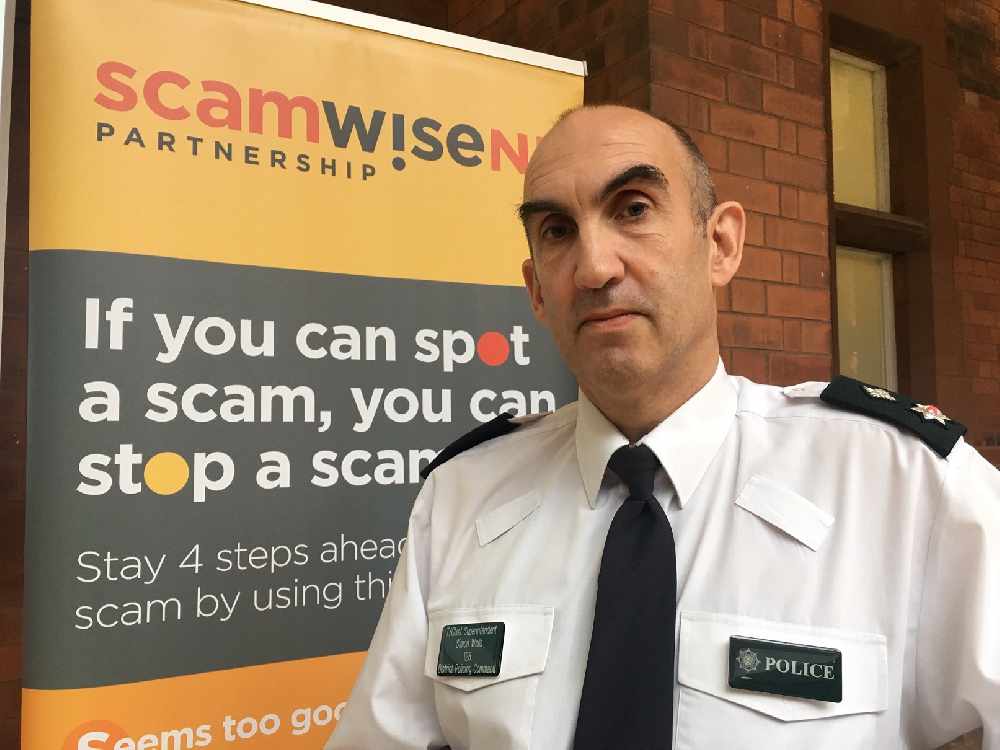
By Rebecca Black, Press Association
A Northern Ireland woman has been scammed out of more than £300,000 by an individual who promised her a romantic relationship.
The victim, who wishes to remain anonymous, was targeted by the man on Facebook three years ago and she believed a relationship had developed.
After three months, the scammer asked her to send him money for his children to be educated in England.
She was later asked for money in relation to investing in both Ghana and Dubai.
In total she sent more than £300,000 to different accounts at his request in what Chief Superintendent Simon Walls described as one of the biggest romance frauds the PSNI has seen in a long time.
He said it is unclear where the scammer is from, and believes he may be moving around internationally.
Mr Walls said the woman has been left devastated by the elaborate deception.
"Inquiries are ongoing into this fraud which has, understandably, had a devastating impact on the victim," he said.
"We receive reports of fraud on a regular basis and, no matter how big or small the amount of money is that a victim loses, every loss is felt by those targeted.
"However, this is one of the bigger scams where a victim has been swindled out of such a significant amount of money.
"Sadly we received another report recently where a similar amount of money was lost in a scam."
In total, more than £1.6 million was stolen from victims in Northern Ireland in a variety of scams that are known about between November and May.
February saw the most incidents, with 253 scams reported to the PSNI. Of those, 16 were by fraudsters calling at their victims' doors, 71 scams were conducted on the internet, six by post and 160 by phone.
These resulted in a total of £391,571 being conned out of victims.
Mr Walls said romance scams are not the most common type reported to police, but they are more personally hurtful to victims.

(Chief Superintendent Simon Walls)
"We have fewer romance scams than the HMRC scams, fewer than scams involving broadband and probably fewer than TV licensing scams, but it has that added dimension that as well as someone's bank account being emptied, their heart is being broken," he said.
"It becomes really personal (for the victim), because you let them into your life, tell them all about your past and your secrets, and someone then ends up falling in love with the individual, so these are probably the most insidious of all, and not to generalise, but some who respond to these are vulnerable."
The senior officer said he believes romance scams are significantly under reported.
"We think many people are simply too embarrassed to tell us they have been scammed in a romance fraud," he said.
"I would make a really heart-felt plea to people if they are reading this story, if they think they are being scammed, even if they have a suspicion of being scammed, please come forward, speak to police, call us on 101.
"The assurance from me is if a scam victim comes forward, we will give you good advice, we will also treat you kindly, treat you with dignity, treat you with respect and try to stop you being victimised."
He added: "If you're concerned by unsolicited calls, emails or letters then please report it to Action Fraud via their website www.actionfraud.police.uk or by phoning 0300 123 2040, or call police on the non-emergency number 101.
"Further advice and information can also be obtained by visiting www.nidirect.gov.uk/scamwiseni or the ScamwiseNI Facebook page @scamwiseni."


 Man may require facial reconstructive surgery following assault in Omagh
Man may require facial reconstructive surgery following assault in Omagh
 Police seize ‘significant quantity’ of drugs following chase
Police seize ‘significant quantity’ of drugs following chase
 Woman dies in hospital after road crash in Co Fermanagh
Woman dies in hospital after road crash in Co Fermanagh
 Police name man found dead in Bangor
Police name man found dead in Bangor
 Education Authority boss hits out at criticisms of public services
Education Authority boss hits out at criticisms of public services